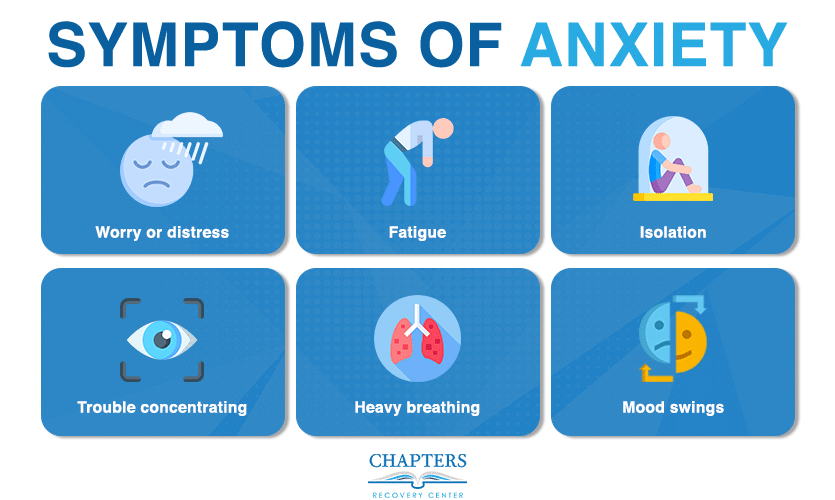Is It Possible to Be Addicted to Weed?
Weed addiction, also known as marijuana use disorder, involves a dependency on cannabis despite adverse effects on daily life. Recognizing the signs of weed addiction is crucial for early intervention and support. These signs include behavioral, physical, and psychological changes such as increased tolerance, cravings, and withdrawal symptoms.
In recent years, the prevalence of weed addiction has surged. This increase can be attributed to higher THC levels in modern cannabis products and broader legalization, making marijuana more accessible. Understanding this trend helps in addressing the growing need for awareness and treatment options.
Controversy surrounds the concept of weed addiction. Some argue that marijuana’s addictive potential is minimal compared to other substances like alcohol or opioids. However, research indicates that long-term use can lead to dependency and significant life disruptions.
For those seeking help with substance use issues, resources are available:
- Learn more about coping skills for addiction: These coping skills are essential in managing addiction effectively, allowing individuals to develop healthier ways of dealing with stressors and triggers.
- Understanding the root cause of addiction: Exploring the root cause of addiction is a vital step towards recovery as it helps individuals address underlying issues that contribute to their substance abuse.
Engaging with these resources can provide valuable insights into managing and overcoming addiction.
By staying informed about the realities of weed addiction, we can foster healthier relationships with cannabis and support those in need.
Understanding Weed Addiction
Marijuana as a Commonly Abused Drug
Marijuana, often referred to as weed or cannabis, is one of the most commonly abused drugs globally. Many people use it recreationally for its psychoactive effects, which are primarily due to the presence of THC (tetrahydrocannabinol). The widespread availability and increasing social acceptance have contributed to its prevalence.
Role of THC in Producing Addictive Effects
THC is the main psychoactive compound in marijuana responsible for altering brain function. It binds to cannabinoid receptors in the brain, particularly affecting areas involved in pleasure, memory, thinking, concentration, and movement. This interaction can produce feelings of euphoria and relaxation but also plays a significant role in the development of addiction. Regular use can lead to increased tolerance, necessitating higher doses to achieve the same effect and potentially resulting in dependency.
Differences Between Cannabis Plant and Hemp
Understanding the differences between the cannabis plant and hemp is crucial when discussing weed addiction:
- Cannabis Plant: Typically cultivated for its high THC content (5-30%), making it suitable for recreational and some medicinal uses. For individuals struggling with addiction, seeking professional help such as a rehab program may be necessary.
- Hemp: Contains negligible THC levels (0.3% or less) and is primarily grown for industrial purposes such as producing fibers, textiles, and CBD products. Those who prefer using hemp-derived products should be aware that these have significantly lower potential for abuse compared to marijuana from the cannabis plant.
Recognizing these distinctions helps clarify why marijuana from the cannabis plant has a higher potential for abuse compared to hemp-derived products. For individuals seeking assistance with addiction recovery, exploring options like rehab insurance can be a crucial step towards their journey to wellness.
The Science Behind Weed Addiction
Influence on the Endocannabinoid System
The endocannabinoid system (ECS) plays a crucial role in regulating various physiological processes, including mood, appetite, and pain sensation. Marijuana addiction disrupts this system, primarily through its active component, THC (tetrahydrocannabinol). THC mimics the action of naturally occurring endocannabinoids by binding to cannabinoid receptors in the brain. This binding leads to altered neurotransmitter release and can result in changes in mood, memory, and perception.
Impact on Heart Health and Lung Function
Weed addiction has potential repercussions on cardiovascular and respiratory health. Heart-related issues may include increased heart rate and elevated blood pressure, which can heighten the risk of heart attacks or other cardiovascular events. On the respiratory front, smoking marijuana can cause lung irritation similar to that of tobacco smoke. Chronic use may lead to symptoms such as chronic bronchitis, cough, and phlegm production.
Link to Mental Health Disorders
There is a significant connection between weed addiction and mental health conditions. Long-term marijuana use has been linked to an increased risk of developing anxiety and depression. Regular users may experience heightened levels of stress and anxiety during withdrawal periods. Additionally, individuals with pre-existing mental health disorders might find their symptoms exacerbated by marijuana use.
Exploring these aspects provides a deeper understanding of how weed addiction affects both physical health and mental well-being. For those seeking recovery solutions, managing stress effectively is crucial—resources like managing stress in recovery can offer valuable insights. Furthermore, addiction therapy programs that incorporate behavioral therapies have shown promise in helping individuals heal from addiction.”.
Signs of Weed Addiction: A Comprehensive Guide
Behavioral Signs
When it comes to identifying weed addiction, behavioral changes often serve as the most noticeable indicators. Individuals grappling with marijuana addiction may exhibit several distinct behaviors:
- Neglecting Responsibilities: One of the primary signs is a consistent failure to fulfill obligations at work, school, or home. This might manifest as missing deadlines, poor academic performance, or neglecting household chores.
- Social Withdrawal: Those addicted to weed often isolate themselves from social activities they once enjoyed. You might notice a reduction in interactions with family and friends.
- Increased Time Spent on Obtaining and Using Marijuana: An obsession with obtaining and using marijuana can become evident. Time previously spent on hobbies or with loved ones may now be dedicated to procuring and consuming the drug.
- Risky Behaviors: Engaging in risky behaviors such as driving under the influence or stealing to support their habit is not uncommon.
- Secrecy and Defensiveness: Increased secrecy about their activities and defensiveness when questioned about their marijuana use may be observed.
- Legal Trouble: Legal issues related to possession or use of marijuana can also be a red flag.
- Financial Difficulties: Struggling with financial stability due to spending excessive amounts of money on marijuana is another warning sign.
Recognizing these behavioral patterns can play a crucial role in early intervention and treatment. If you notice these signs in someone you care about, seeking professional help, such as DBT therapy for addiction, could be beneficial for recovery.
Physical Symptoms
Weed addiction also manifests through various physical symptoms that can serve as warning signs:
- Bloodshot Eyes: Persistent redness in the eyes is a common indicator.
- Increased Appetite: Often referred to as “the munchies,” a sudden increase in appetite, especially for junk food, can be a sign of frequent marijuana use.
- Dry Mouth and Throat Irritation: Chronic dry mouth (cottonmouth) and throat irritation are typical physical symptoms.
- Fatigue and Lethargy: Excessive tiredness and lack of energy may indicate heavy usage.
Consistently observing these physical symptoms should prompt consideration of seeking professional guidance. Gender-specific rehab programs like those offered by Chapters Recovery provide tailored treatment plans that address unique needs.
Psychological Effects
The psychological effects of weed addiction can profoundly impact an individual’s mental well-being:
- Paranoia and Anxiety: Regular users might experience heightened feelings of paranoia or anxiety, even when not using the drug.
- Impaired Cognition: Difficulty concentrating, impaired memory, and distorted perceptions can interfere with daily functioning.
- Mood Swings: Erratic mood changes ranging from euphoria to irritability are common among those addicted to marijuana.
Acknowledging these psychological effects is essential for understanding the full scope of weed addiction. Early detection allows for timely intervention through therapies such as cognitive-behavioral therapy (CBT) and motivational interviewing.
Physical Symptoms
Weed addiction can lead to several noticeable physical symptoms. Recognizing these signs is crucial for timely intervention and recovery.
Bloodshot Eyes
One of the most common physical manifestations is bloodshot eyes. This occurs because THC, the active ingredient in marijuana, causes blood vessels in the eyes to expand.
Increased Appetite
Often referred to as “the munchies,” increased appetite is another hallmark of marijuana use. THC influences the brain’s areas that control appetite, leading to heightened cravings for food.
Dry Mouth
Commonly known as “cotton mouth,” dry mouth is a frequent symptom experienced during marijuana use. It results from THC affecting saliva production.
Fatigue and Lethargy
Individuals addicted to weed may often feel fatigued or lethargic. This can be due to marijuana’s sedative effects, which slow down bodily functions and make it difficult to stay active.
Impaired Coordination
Marijuana impacts the central nervous system, leading to impaired coordination and motor skills. This can increase the risk of accidents and injuries.
Increased Tolerance
Over time, individuals may develop a higher tolerance, needing more marijuana to achieve the same effects. This can lead to increased consumption and dependency.
Recognizing the signs and symptoms of weed addiction can help individuals seek timely treatment and recovery. Weed addiction can manifest in various ways, and it’s important to look out for a combination of behavioral, physical, and psychological indicators.
Understanding these physical symptoms helps in identifying potential addiction early on, paving the way for appropriate interventions such as rehab programs tailored for marijuana addiction.
Psychological Effects of Weed Addiction
Weed addiction can have a significant impact on mental well-being. Here are two key psychological effects to be aware of:
1. Paranoia
Individuals struggling with marijuana addiction may experience symptoms such as paranoia, which can manifest as an irrational distrust of others or a persistent feeling of being watched. This heightened state of anxiety can disrupt daily functioning and social interactions.
2. Impaired Cognition
Another critical psychological effect of weed addiction is impaired cognition. Users may find it challenging to concentrate, remember information, or make decisions. This cognitive impairment can hinder academic performance, work efficiency, and even basic daily tasks.
It’s important to recognize these signs and symptoms of weed addiction in order to seek timely treatment and recovery.
Key Takeaway: Recognizing the signs and symptoms of weed addiction can help individuals seek timely treatment and recovery.
Note: Weed addiction can manifest in various ways, and it’s important to look out for a combination of behavioral, physical, and psychological indicators.
Is It Possible to Develop a Withdrawal Syndrome from Weed?
Potential Short-Term Effects of Marijuana Abuse
Marijuana abuse, especially with high levels of THC, can cause several short-term effects. Users may experience:
- Memory Impairment: Difficulty in forming new memories or recalling recent events.
- Coordination Problems: Impaired motor skills, increasing the risk of accidents and injuries.
Long-Term Use and Withdrawal Syndrome
The question of whether long-term, heavy marijuana use can result in a clinically significant withdrawal syndrome is still debated. However, evidence suggests that chronic cannabis abuse may lead to a range of withdrawal symptoms when usage is stopped. These symptoms can include:
- Sleep disturbances
- Irritability and agitation
- Loss of appetite
- Anxiety and depression
These withdrawal symptoms highlight the potential mental health risks of marijuana, especially for those who use it for a long time. While not always severe, they show that weed addiction has real effects on physical and mental well-being.
The effects of THC on the endocannabinoid system are still being studied, but it is clear that dependence can develop, leading to these withdrawal symptoms when the drug is no longer used.
Seeking Help for Weed Addiction
Professional Treatment Options
Addressing marijuana addiction requires a multi-faceted approach, leveraging various evidence-based therapies. Cognitive-Behavioral Therapy (CBT) is one of the most effective treatments. This therapeutic approach focuses on identifying and modifying the thought patterns that contribute to substance use. CBT helps you develop coping strategies to manage cravings and avoid relapse triggers.
Motivational Interviewing (MI) is another powerful tool in marijuana addiction treatment. This client-centered counseling style aims to elicit and strengthen your motivation for change. MI works by exploring and resolving ambivalence, emphasizing your autonomy in making decisions about your substance use.
Contingency Management (CM) is an intervention that provides tangible rewards to reinforce positive behaviors such as abstinence from marijuana. By offering incentives for drug-free urine tests or attendance at therapy sessions, CM increases the likelihood of sustained recovery.
Dual Diagnosis Treatment is essential if you have co-occurring mental health disorders like anxiety or depression alongside weed addiction. Integrated treatment plans address both conditions simultaneously, ensuring a more holistic recovery process.
Family Therapy can be particularly beneficial, especially if your marijuana use has strained relationships with loved ones. Involving family members in the treatment process fosters better communication and support systems, which are crucial for long-term recovery.
Supportive Interventions
Medications are sometimes used to manage marijuana withdrawal symptoms, although none are currently approved specifically for this purpose. Off-label use of medications like antidepressants or anti-anxiety drugs may alleviate some withdrawal symptoms, aiding in the initial phases of recovery.
Participation in mutual aid groups like Marijuana Anonymous (MA) offers peer support and accountability. These groups follow a 12-step program similar to Alcoholics Anonymous, providing a structured pathway to recovery through shared experiences and collective wisdom.
Engagement in aftercare services ensures continued support once initial treatment is completed. Sober living houses, outpatient programs, and ongoing therapy sessions help maintain sobriety by offering a safe environment and continuous access to professional guidance.
Maintaining a balanced lifestyle with regular exercise, healthy eating habits, and mindfulness practices can also play a significant role in supporting recovery from weed addiction. Integrating these activities into your daily routine enhances overall well-being and reduces the likelihood of relapse.
By seeking professional help and leveraging supportive interventions, you can effectively address marijuana addiction and work towards a healthier future.
Supportive Interventions
Medications can play a role in supporting recovery from weed addiction, though it’s important to note that none are currently approved specifically for this purpose. Some individuals may find relief through prescription medications designed to manage symptoms of anxiety or depression, which can sometimes accompany marijuana withdrawal symptoms.
Participation in mutual aid groups such as Marijuana Anonymous is crucial for those seeking long-term recovery. These groups provide a supportive environment where individuals can share their experiences and strategies for overcoming addiction. Engaging in aftercare services is equally important to maintain sobriety and prevent relapse.
Key Takeaway: While some individuals may experience mild withdrawal symptoms upon quitting weed, comprehensive treatment is often necessary for long-term recovery from addiction. Reaching out to healthcare professionals or addiction treatment centers can offer the support needed to overcome weed addiction effectively.
Chapters Recovery Center, Contact Our Team!
Being aware of the dangers of weed addiction and staying informed can help us develop a healthier connection with cannabis. It is important to learn about cannabis use disorder and be able to identify signs of marijuana withdrawal as early as possible.
Promoting open discussions and removing the stigma around weed addiction can make it easier for people to seek assistance when necessary. By openly addressing these problems, we create a supportive atmosphere where everyone has the opportunity to recover. Contact the Chapters Recovery team if you are looking for someone to talk to!








